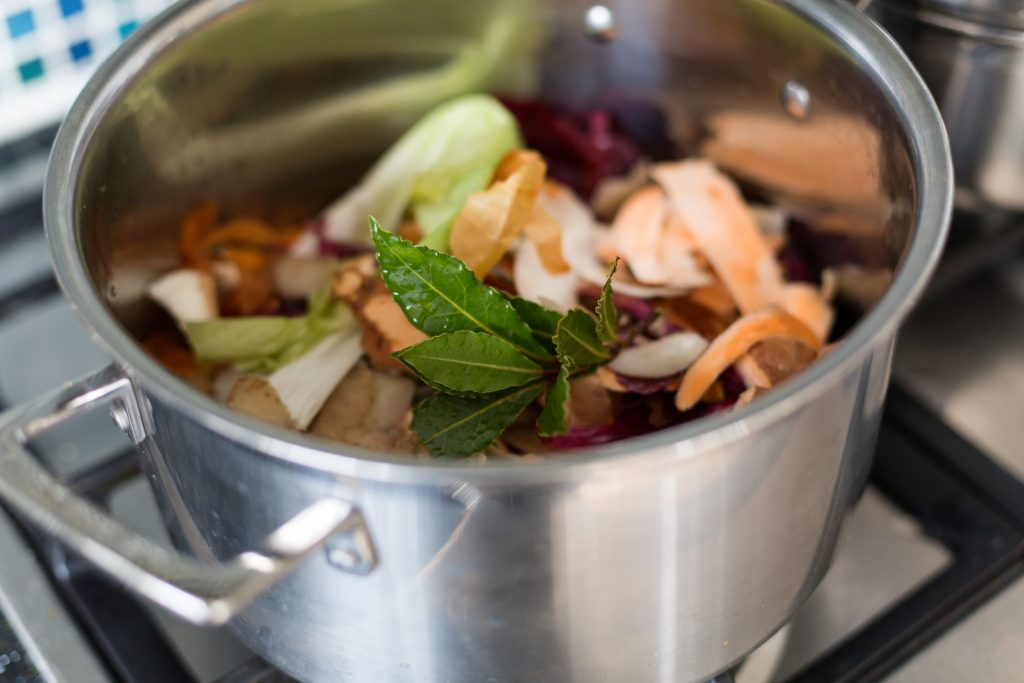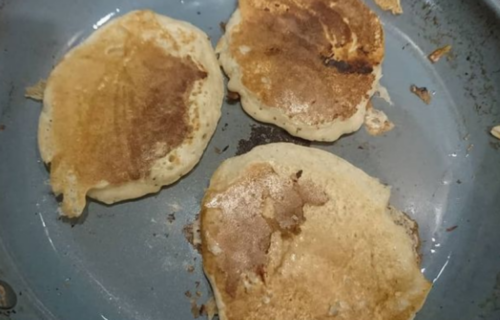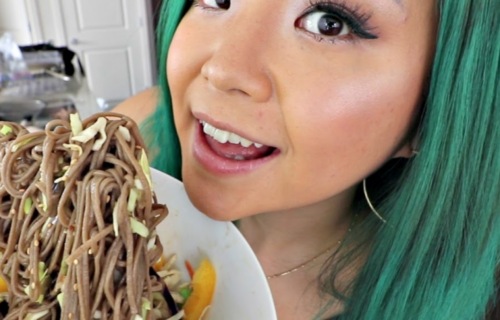
15 ways to avoid throwing away leftover food.
Avoiding throwing away leftover food is something that has become more and more important to me. It hasn’t always been this way. In the past I really didn’t give much thought to it. I felt bad that there were people going hungry in the world, but I didn’t directly connect it with the food that I was wasting. I also didn’t have any idea of the impact of throwing food in the bin to be taken to landfill.
Now I have a much clearer idea of why I shouldn’t throw away leftover food.
Three problems with throwing away food:
- Food rots in landfill and produces methane , a greenhouse gas.
- It’s a massive waste of money. The average family throws around £60 of food away a month. Much of it perfectly good food.
- We have a growing food poverty crisis in this country, which needs to be addressed. People in my own community live without enough food. Trussell Trust food bank usage has shockingly tripled since last year! 913,138 people received three days emergency food from Trussell Trust foodbanks in 2013-14. Compared to 346,992 in 2012-13′.
The bad news is that we are wasting so much food. The good news is that we don’t need to wait for any government initiatives or funding. We can all start wasting less food today and we are the ones who have the biggest impact!
Most people I talk to about food waste, tell me that they rarely throw any away and use up all leftover food. I don’t always believe them though. I just don’t think it is something they are really aware of, or know they are doing. Last September I kept a food waste diary as part of National Zero Waste Week. I was really surprised at how even though I was trying really hard not to waste food, it was still getting waste. Since then I have been much more aware of food waste at home and have the following tips and tricks to keep it to a minimum.
How to avoiding throwing leftover food away
1.Keep a food waste diary for a week. Work out what you keep buying too much of. What is being regularly chucked away? What are your problem areas are in relation to food waste? Even if you think you are good at not chucking food away, I recommend doing this as you may surprise yourself.
2. Avoid having leftovers in the first place, by just buying what you need! Write a shopping list before you go out and stick to it. Don’t get swayed by special offers on things you had no intention of buying. Also if you can get food loose, then you can buy it in the quantities you actually need, rather than the amount that was in the packet, which might be too much.
3. Count potatoes and try to make just the right amount. If you are making roast potatoes, a large potato can be cut into 4 to 6 roast potatoes. If I have any potatoes leftover, I let them cool down and then I freeze them for another time. Cook the frozen potatoes for 30 mins to an hour (until they are piping hot all the way through).
4. Weigh dried goods such as rice and pasta. I use 80g of dried pasta for an adult and 50g each for my kids (aged 3 and 5). I use 75g of rice for an adult and 50g of rice for the kids.
5. Sometimes I leave food in the oven with the oven off to keep warm / cooking for a bit. This uses up the residual heat after it has been on. It is easy to forget it is in there only remembering it the next day. At which point it needs to be chucked away. To avoid this put the timer on the oven for half an hour later. It is a great reminder to take the food out!
6. Freeze leftovers. Freezing leftovers means you don’t have to use them up straight away and they will keep for quite a while. I find if I put them in the fridge it’s easy to not use them up in time. I try to avoid having leftover rice and pasta by weighing it first. Although they are freezable, they don’t defrost well without a microwave. Also be careful freezing rice as there is a risk of food poisoning. The foods I do freeze include;
- homemade sauces
- roasted, baked or mashed potatoes. Sometimes mashed with veg or butternut squash
- leftover roast chicken
- cooked meat and cooked fish.
I would never freeze any cooked foods that had been frozen before and when I use the frozen cooked foods if they aren’t eaten straight away they would go on the compost heap. If reheating frozen cooked foods, it is very important to make sure they are piping hot all the way through before eating. If defrosting cooked foods to eat cold, it is very important to make sure they are fully defrosted the whole way through before eating.
7. It is very hard to predict how much my kids will eat. Sometimes they eat loads and other times they take one look at their dinner and say no thanks. If you have kids, take a look at this article I wrote on how to limit food waste when you have kids
8. Freeze bread. If you have more than you can use up before it will go off, you can angle the slices within the bag which makes them easier to separate once frozen.
9. If it is too late to freeze bread, there are loads of things you can do with day old bread. I have a few ideas here, my favourite of which is to make melba toast. It is simple to make! Toast some bread, chop off the crusts, separate the pieces of toast so that it looks like you have two slices of toast, except only one side is toasted. Put the non-toasted sides facing upwards on a tray in the oven and cook them for a few minutes, keeping a close eye to make sure they don’t burn. Once hard and brittle, let them cool completely and store in an airtight container.
10. Give blackened bananas a new lease of life! There is never any excuse to chuck out a banana! There is always something you can do with it. You can chop it up into coin shaped slices and chuck it in the freezer to use another time. The same is true of most fruit that has gone a bit too ripe. I blitz frozen banana to make a dairy free, sugar free icecream. It’s so yummy! I also have a banana tea bread recipe here.
11. I could write a whole book on what to do with leftover cooked veg, squashes and potato! But here are a few ideas to get you going:
- Turn them into mash
- Use them as the basis of a soup or a dip, or a smoothie, or a juice
- Eat them cold with salad or in a sandwich
- Use them as an ingredient in a cake – I have a great butternut squash tea bread recipe here
- Mix with a strong flavoured frozen fruit to turn them into a sugar free, dairy free sorbet!
12. Freeze milk! If you know you have bought too much milk freeze it in ice cube trays. Then pop out the ice cubes and put them in a container in the freezer. Another way to use up milk to to make cheese sauce and freeze it in containers.
13. Freeze grated cheese if you can’t use it in time! Frozen cheese isn’t good for much other than cooking after it is defrosted. It’s best to grate it first.
14. Freeze yoghurt or make it into a dip! If can’t use it all up you can make homemade frozen yoghurt. Mix plain yoghurt with fruit and blitz it together to get an instant desert. Plain yoghurt makes a great base for dips such as Tzatziki. Mix a little up with some finely chopped cucumber and fresh mint. There are loads of dips you can make! You could mix it with cream cheese, garlic, chives – get experimenting!
15. Follow a recipe. Given my last statement about getting experimenting, this is a bit of a contradiction. I’m not great at following recipes and I think experimenting is a brilliant way to learn. However, following a recipe from a trusted source can save you wasting food on failed experiments. If you still want to experiment, take notes of what you did as you go along. Then next time you can look back at what worked and what didn’t. Eventually you will have your own set of recipes that you invented to follow!
With the best will in the world it is likely that you will still have leftover food that doesn’t get eaten.
It might be that your kids didn’t clear their plates. It might be that you are doing an elimination diet. You might decide you don’t want to eat a particular food group. You could be going away and clearing out the fridge or food was substituted in your online shop. Whatever the reason you can’t use the food, you really don’t want to be chucking that food in the bin.
Instead of chucking out food you can:
- Give it to friends, family or strangers. If you don’t know anyone personally who wants your food, you can give food away on Freegle and Freecycle. There is a Facebook food sharing group for my local area. Have a look if there is one near you. If not you could start one!
- Compost any leftover food waste at home. We used to have a bog standard compost heap that only composted fruit and veg scraps and garden waste. Recently we invested in a *Green Johanna hot composter. This allows you to compost meat, fish and cooked foods. If you live in Brighton and Hove the council are offering them at a greatly discounted rate.
- Recycle it. Some councils have a food waste collection scheme. If yours does then this is a great option for leftover food that can’t be saved.
- Community compost schemes. In my town there are some community compost projects, where people can take food waste to. This is a great way for people who don’t have gardens to still be able to compost their food waste.
I feel passionately that we can make a massive difference to food waste and food poverty. By changing our habits we can make sure that we waste as little food as possible. Give away what you can’t use and compost anything that is unable to be rescued.
This blog post contains affiliate links marked with * and anything you buy through them will help to support the blog as I will get a small commission. All opinions are my own and it won’t cost you anything extra to use the links. Thanks!






I HATE wasting food so much!
I get pretty obsessive about it.
We have a fruit box at work delivered and by Wednesday all the nice looking fruit has gone and it's just some of the slightly manky ones left. I get to benefit here as I don't really care what it looks like, it generally tastes fine! So I normally get to eat fruit 5 days a week.
I can't think when did people become such fussy gits, although I guess I may have been like this 5 or so years ago. I don't think the barrage of rubbish stories in the press about e-coli and all that sort of thing helps, as people make connections in their mind that don't really exist. I think sell by dates/best before dates are a load of tat as well. If it looks fine, smells fine, and isn't covered in green hairy stuff, then generally you can eat it. I regularly eat Lettuce that is 2 weeks past it's best before date for example… just make you own call.
One of my best tricks with bananas, even ones that look way past it and are beaten up and bruised, is to slice or mash them into porridge. It is so nice as the fruit is over ripe and very sweet (no added honey needed!)
I could go on for ages about other stuff but I think I've said enough for now, but needless to say… Great article and tips there Zoe!
Cheers!
Well that's one way to get your 5 a day 🙂 Good tips about bananas! I recently found a new use for ripe bananas – mash them up, mix with some water and pour the mixture into lolly moulds for some banana flavour lollies (could sub water for juice or milk too).